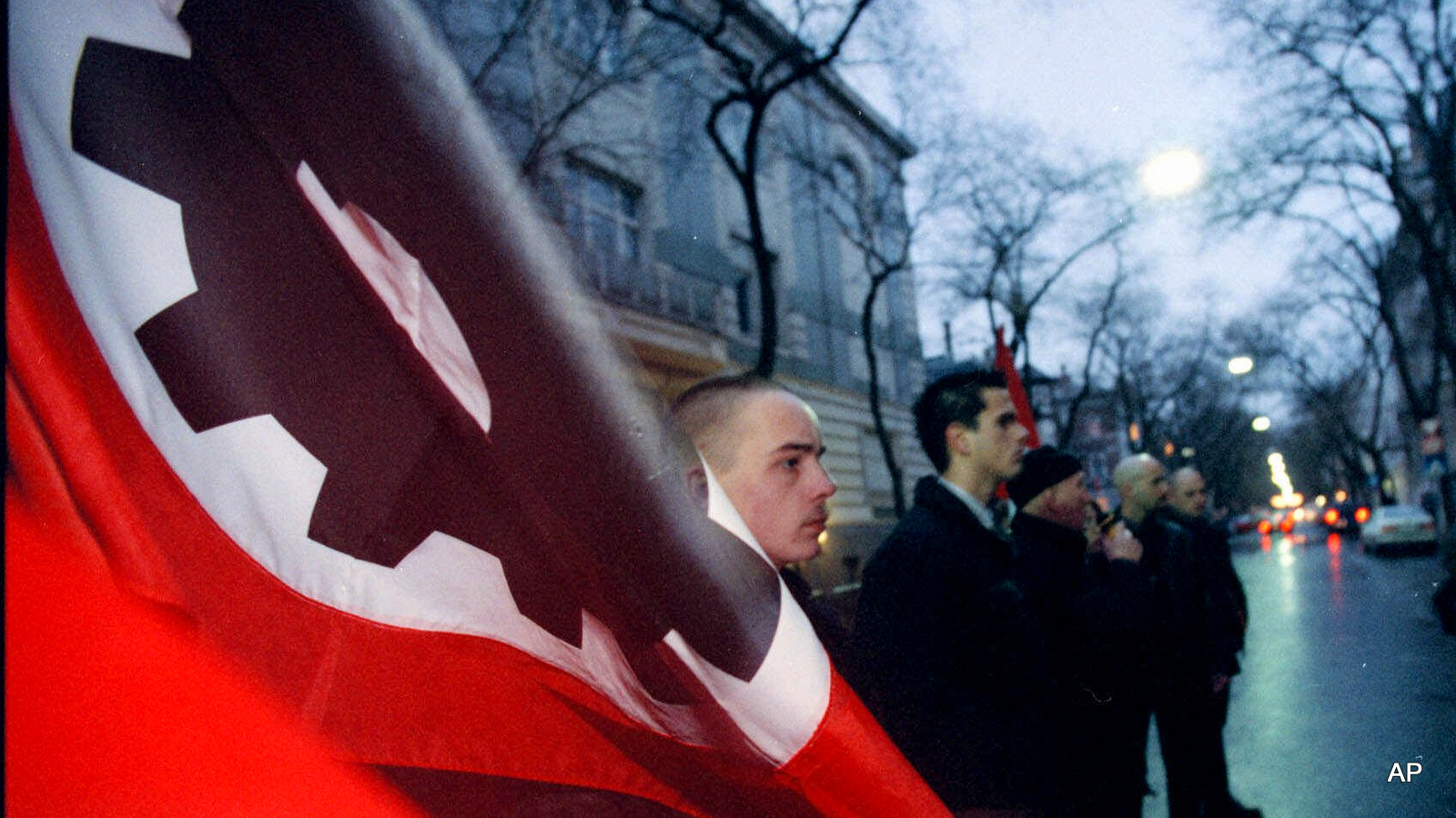
Reports neo-Nazi crimes have increased in Austria could have been “easily predicted” but have little chance of “becoming a mainstream movement,” expert on immigration and political attitudes told Sputnik.
Responding to offences reported in the Austrian states of Tyrol and Upper Austria, including spraying Nazi related graffiti on walls and posting glorifications of Adolf Hitler on Facebook, Dr. Sergi Pardos-Prado from Oxford University suggested an increase in support for populist parties has led to a “legitimization of radical movements.”
“Populist parties like UKIP and the AFD legitimize the small but very radical Nazi-movement and that’s when you witness the graffiti and increase in hate crime in Europe,” Dr. Pardos-Prado said.
“I don’t suspect this movement has any chance of becoming a mainstream movement. It’s very attractive for the media to report on it — and it’s very scary and shocking considering Europe’s history — but it is a minority movement that is becoming legitimized by populist parties and magnified by all of us.”
Dr. Pardos-Prado who is currently presenting his academic research at conferences across Europe, told Sputnik it is important to distinguish the difference between the neo-Nazi movement in some corners of Eastern and Central Europe from the populist and anti-immigrant parties in the rest of Europe.
“Both of course are anti-immigrant and both respond to different narratives and ideologies.”
“It is not by chance in Germany that the extreme right wing movement is getting stronger at the same time Angela Merkel’s CDU party is becoming relatively more flexible in its stance towards immigration and Europe’s refugee crisis,” Dr. Pardos-Prado told Sputnik.
“The key to the success of populist parties is their anti-immigrant rhetoric. Their legitimacy comes from the fact that they receive a lot of support from disaffected working class left-wing people — but also classic conservative right-wing voters.”
“And when you’re able to fragment and divide the political spectrum using immigration, then you get support from the left and the right,” Dr. Pardos-Prado added.
Meanwhile Austrian newspaper Der Standard recently reported 118 charges under paragraph three of Austria’s Prohibition Act which aims to prevent any potential revival of Nazism between January and August of this year.
This compared to a total of 119 charges for the whole of 2014 and 151 charges in 2015, according to the country’s Ministry of Justice.
Neo-Nazi crimes doubled from 2014 and 2015 in the capital of Tyrol, Innsbruck, the most common charge related to the dissemination of Nazi propaganda or publicly denying the crimes of the Third Reich.
Opposition Green MP Albert Steinhauser has reportedly blamed the attacks and racist or Nazi graffiti on the “heated political debate about asylum seekers.”
Austria has also witnessed an increase on attacks on asylum centers, ranging from arson to acid. The country’s right-wing Freedom Party has been accused of stoking fears and concerns about the number of asylum seekers to boost its support.
‘Discourse Unifies Space’
Austria has traditionally been one of the most popular countries for political extremism and “the right has been prominent for over a decade which has had a clear impact on government politics,” Dr Sergi Pardos-Prado said.
“France, Netherlands, Denmark and Sweden, also top the list of countries, regrettably, in terms of ant-immigrant support there.”
Dr. Pardos-Prado predicts that populist and anti-immigrant parties will remain strong, their success depending on the center-right parties gaining ownership of the anti-immigrant feeling and “finding the discourse that unifies that space.”
“Immigration is the core issue that is attractive and builds alliances between different backgrounds,” Dr. Pardos-Prado says, suggesting that a loss of ownership over the issue of immigration encourages voters to move to the radical right, while typically center-left voters move further left.
“The typically left wing working class electorate is fragmented which means they will become loyal to the anti-immigrant populist right.”
“The issue of immigration helps forms alliances from everywhere,” Dr. Pardos-Prado says.
“The class alliances we are witnessing in countries which had a relatively peaceful transition into democracy are similar to the class alliances between rich and poor that we witnessed during the democratic struggles in the 1930s.”
However, Dr. Pardos-Prado isn’t quick to draw any comparisons to the two historical scenarios:
“I don’t suspect classical fascism will continue to rise; but they will remain a minatory movement which will hopefully drop off again.”

